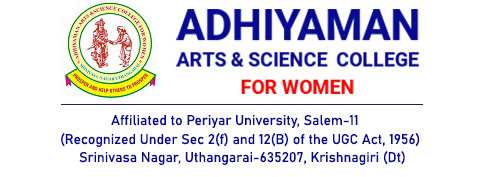As modern life becomes increasingly fast-paced, verbal agreements have become a common part of life. The handshake, long celebrated in Western society as the physical embodiment of a contract, is still commonly relied upon to seal the deal. But what is the legal standing of a handshake? In what situations would a handshake actually create a binding agreement? We will break down the topic below and then consider what this might mean for the life of a college student.
Handshakes have long been considered a universal way to make an agreement or reach a deal. This informal nature can lead to a question: does a handshake result in a binding contract? In short, yes and no. If you did a quick Google search for “are handshakes legally binding?”, you may have noticed that there isn’t a clear yes or no answer. In reality, whether or not a handshake leads to a binding contract depends on the context of the handshake. Whether or not a handshake creates a binding contract depends on the perception of both parties. If both parties to a verbal agreement believe that they have entered into a binding contract, the law is likely to agree with them. In order for this mental state to be reached, certain conditions must be met.
Throughout history, handshakes have been used for a wide range of purposes. Even in ancient times, during the Mesopotamian Empire, people would shake hands as a way of sealing a deal. When shaking hands as a way of completing an agreement did not yet exist, handshakes were used to convey other ideas. For example, handshakes were used as: As mentioned above, shaking hands did not always have a legal meaning. Even today, there are cultures in South America and Africa who use handshakes differently. For some people, it is merely a way to greet someone. Others may view it as a sign of respect. With this in mind, how are people supposed to know whether or not a handshake conveys a legal meaning? In the past, it would have been a localized matter, as cultures evolved gradually. Today, these cultural nuances come into play in a more globalized world. With so much cross-cultural interaction, such as in the college environment, students must understand that a handshake might not mean the same thing to everyone. In fact, it is probably better to consider a handshake as a cultural foundation, rather than a legal one.
To understand whether or not a handshake creates an enforceable verbal contract, we need to dig into the core concept of contract law. The basic negotiation process of a contract is as follows. So, what does all of this have to do with a handshake? Well, a handshake generally marks the end of step 4 (in the example above). More important than marking the end of an agreement, the handshake seals the deal in a physical and observable way. Because of this, many believe that a handshake is enough for a verbal contract to be valid. From a legal standpoint, things aren’t quite that straightforward. For the most part, verbal contracts can be inferred from our gestures, actions, and behaviors. In the absence of written contracts, courts may look at our physical actions as a way of understanding the intentions of the parties involved. Therefore, if both parties shake hands and agree on (either implicitly or explicitly) the terms of a contract, a court is likely to enforce it. Strangely enough, people often assume that the law is very familiar with the context and subtlety of human communication. In fact, it is supposedly legal jargon that creates a great deal of confusion around common contracts. Court cases have shown us, for example, that even a clear refusal to agree to a contract isn’t enough. In 2014, Allens v Johnson Autoservices came to an end over three years after it began. The court rejected the plaintiff’s claim for lost income because he had continued to make offers throughout the negotiation period. By continuing to put some of his agreement into writing, he was suggesting that the negotiation was still happening – and thus he had not yet accepted the defendant’s terms. Therefore, it is essential to keep in mind that a handshake is rarely the final word on a verbal contract. If there is any further correspondence on the matter, such as emails or text messages, the court may consider these as well. If you would like to know more about the enforceability of verbal contracts, you can read more here.
While a handshake won’t always be enough to result in a legally binding contract, there are plenty of examples where a handshake has been enforceable. While contracts do not always have to be written in order to be legally binding, courts will still only enforce verbal contracts in a relatively small number of situations. The following are some examples that have been used to legally recognize verbal contracts.
Of course, there are a few risks and benefits of using verbal contracts that you may want to take into consideration before relying on these agreements. In general, some of the pros of using verbal contracts include: On the other hand, some of the cons of relying on verbal contracts include: Ultimately, the decision of whether or not to rely on a verbal contract will depend on your situation. For some people, it isn’t worth the risk of trying to make a verbal contract stick, while for others, it certainly is. As a college student, you will likely be placed in many situations which will ask you to make decisions on the fly. Perhaps you are offered a position as an intern or graduate assistant, or maybe a professor simply wants to know if you are planning to continue working in the lab. Either way, there will probably be a time when someone uses a handshake to renew your employment. These may seem like small agreements, but this does not mean that they won’t be subject to legal scrutiny. To give yourself the best chance of benefiting from a handshake, keep these tips in mind. While people may be used to entering a verbal agreement, it is important to remember that this doesn’t always make them legally binding. Only in cases where the required elements of a valid contract are met will we see a handshake resulting in an enforceable verbal agreement.






